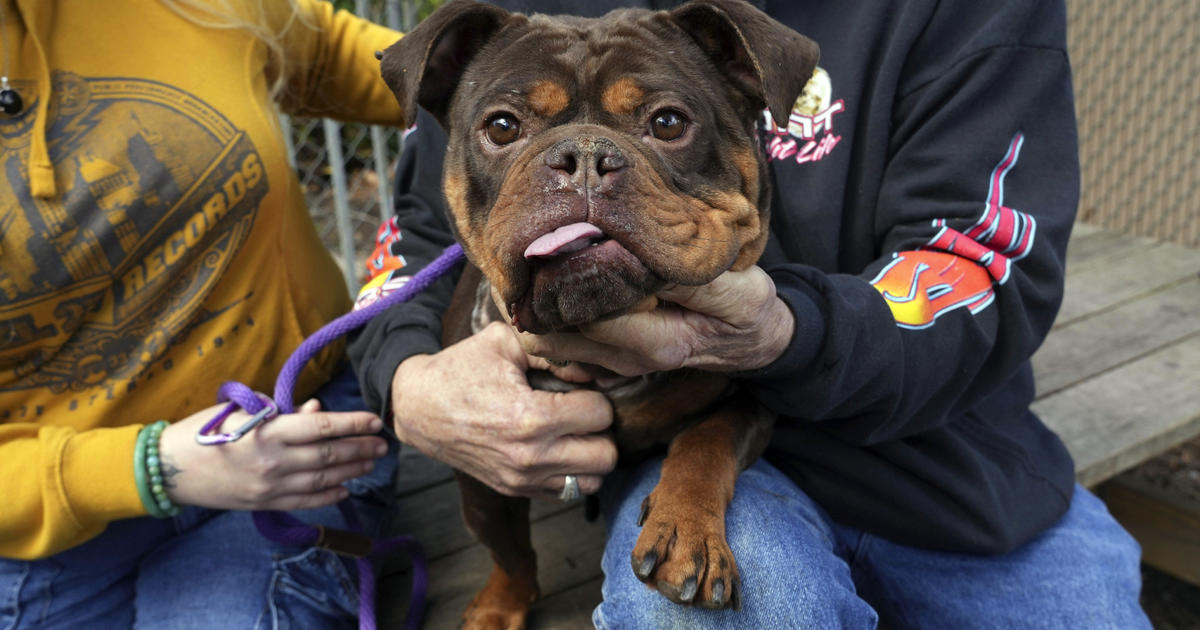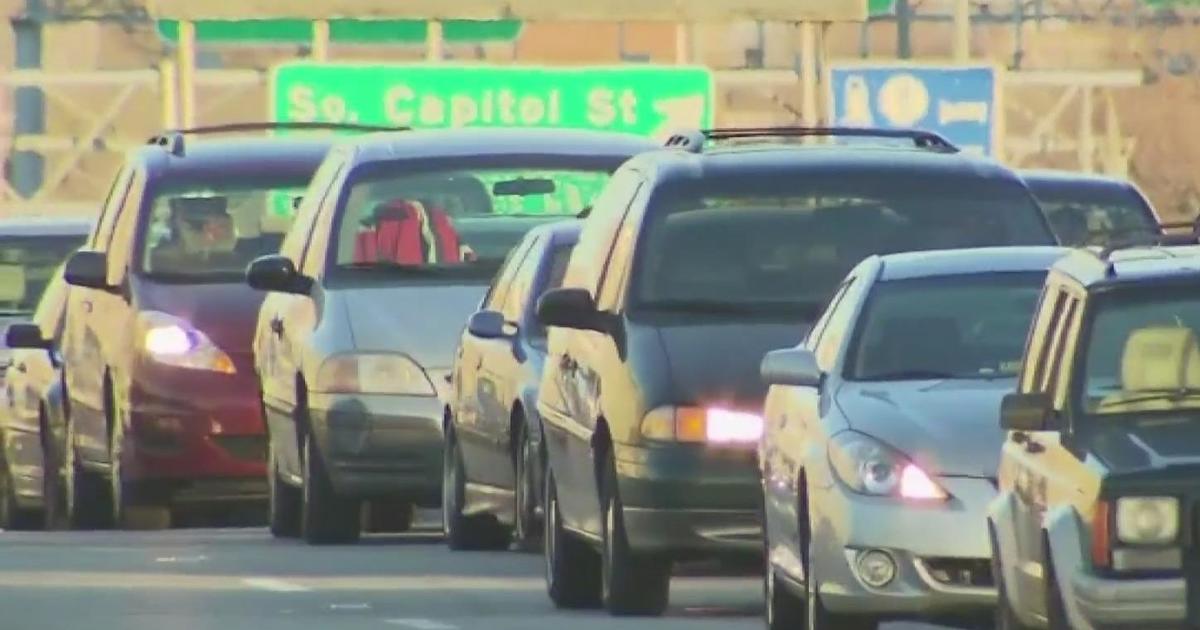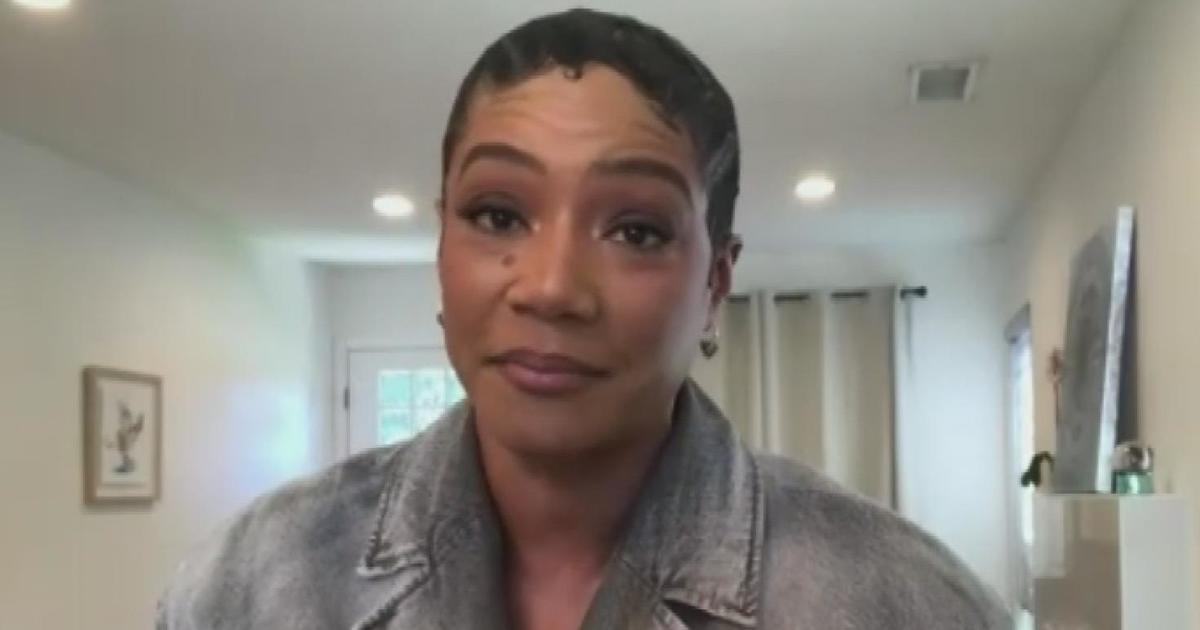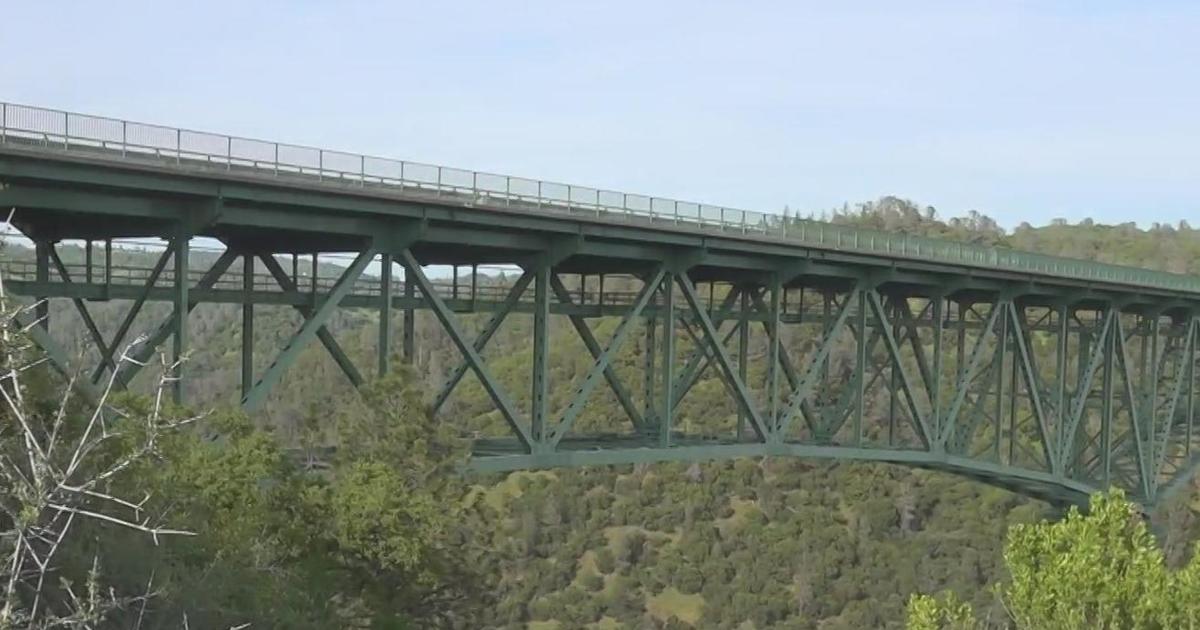Many California Restaurants Hanging By A Thread After Renewed Indoor Closures
(CNN) -- At the beginning of the pandemic, the owners of Guerrilla Tacos in Los Angeles felt optimistic.
Like other businesses, they were told in March they had to close due to the coronavirus stay-at-home that went into effect in California and most of the country. So the owners put their heads together to come up with a plan to help those in need, as well as their own business.
They shifted their business strategy and began selling "Emergency Taco Kits," a so-called survival pack filled with five pounds of roasted chicken, five pounds of carne asada, a quart of red salsa, a quart of green salsa, tortillas, onions, cilantro, and rice and beans. They also came with emergency essentials: Four rolls of toilet paper and 30 eggs.
The kits were a hit, and sold quickly. With the orders coming in, Guerrilla Tacos was able to continue paying vendors and staff, though the restaurant wasn't really profiting.
"We're really lucky," co-owner Brittney Valles told CNN at the time.
But that was March -- and now, their luck has seemingly run out. Like many businesses, they adapted to ongoing orders from the state on how to operate safely during a pandemic. When they got the green light to reopen indoor dining (LA gave the OK to resume indoor dining on May 29), they invested money, time and energy into figuring out how to do so with a July opening date in mind.
"We spent about $40,000 (on efforts) to reopen (indoor dining) safely," Valles said in an interview with CNN on Wednesday.
Just over a month later, amid surges in Covid-19 cases in California, Gov. Gavin Newsom announced that all counties must close indoor activities at restaurants, wineries, tasting rooms, movie theaters, family entertainment centers, zoos and museums. Bars had to close all operations.
Additionally, 30 counties on the state's monitoring list were required to close fitness centers, places of worship, offices for non-critical sectors, personal care services, hair salons and barbershops, and indoor malls. The number of counties on the monitoring list now stands at 35, Newsom said Wednesday.
Guerrilla Tacos had just reopened its doors on the same day as Newsom's reopening rollback. "As it turned out, all of that work was for five glorious hours of being open again," Valles said.
The popular Downtown Los Angeles taco spot is not the only business to find itself in a tough place financially following the new indoor closure mandate.
While most are still allowed to operate at some capacity, the government's decision to once again shut down anything indoors has led to fears that they may not survive this second wave of restrictions.
Some LA business owners, like Valles, had already poured money and resources into meeting new state guidelines so they could safely reopen. Others said they had to furlough employees, not long after they hired them back. And some businesses that don't have outdoor spaces, or can't do their services outdoors in the first place, had no choice but to close again entirely.
As cases surge, confusion mounts
California, the first in the United States to issue statewide mandatory restrictions, on Tuesday surpassed New York as the state with the most recorded coronavirus cases. The Golden State has reported the most cases (more than 424,000) in the US so far, and has had more than 8,000 coronavirus-related deaths, as of Thursday, according to Johns Hopkins University.
Covid-19 is set to become one of the leading causes of death in Los Angeles County, according to Health Director Barbara Ferrer.
At a press conference last week, Newsom said the state is "moving back into a modification mode of our original stay-at-home order, but doing so utilizing what commonly is referred to as a dimmer switch, not an on and off switch."
While many said they understand the need to roll back reopenings for safety reasons, they expressed disappointment in what they say is the lack of clear communication between state and local officials and business owners.
"Getting information on new mandates has been incredibly confusing," said Steph Sklar-Mulcahy, owner of CycleBar in Culver City.
California's website dedicated to Covid-19 has a section where businesses can search restrictions by county. There is also detailed guidance on how businesses can protect workers and customers.
Los Angeles also offers toolkits "to support businesses that are allowed to open to operate safely or to help those that are closed prepare for when they are allowed to reopen," according to its website.
But Sklar-Mulcahy said sometimes she doesn't find them to be up to date. For example, her spin studio found out on Twitter that Los Angeles County was requiring people at fitness studios and gyms to wear gloves and masks at all times.
"Personally, I do not use Twitter often and I certainly don't use it as a news source," Sklar-Mulcahy said. "We combed the county public health website and could not find anything about this new order, yet it was on Twitter. A few days later, it showed up on the website."
CNN reached out to to the Los Angeles County Health Department and Newsom's office for comment, but did not immediately hear back.
Valles said she feels frustrated by the lack of support from officials. She especially is disappointed by the fact that there could have been some relief, had a bill called SB 939 passed in the state Senate.
Introduced by Sens. Scott Wiener and Lena Gonzalez in May, the bill sought to help restaurants and businesses by "creating a commercial eviction moratorium for businesses & nonprofits," Wiener tweeted when introducing it. And it would create "space for hospitality businesses to renegotiate rent where capacity has been slashed due to social distancing & the rent no longer corresponds to their mandated business model."
"We want these business to survive," he wrote. "It's in all of our interest, including the landlords."
But the measure failed to advance after landlord groups fought hard against it, the San Francisco Business Times reported in June.
When the bill died, Valles felt defeated. She built the taco restaurant with her business partner, with no backing from her parents or other family members.
"Nothing was handed to us," she said.
"I still have to pay the same market rent that I had to pay when I was making 20k a day," she said. "Now I'm making 1k...and I still have to pay $3,600 a month. We had a bill on the table which simply allowed tenants to be forced to negotiate with landlords and it died."
In general, she feels in order to improve the situation for LA businesses, "there needs to be a little bit more support from our community and community leaders to create an equilibrium so we can all just get thorough this."
Sklar-Mulcahy, meanwhile, is hoping for more "consistency with the orders from the state" going forward.
"This back and forth of opening, closing and back and forth is not only mentally exhausting," she said, "but it is confusing for our members and creates a fear of returning, even when we have done everything we can to keep them riding safely."
Pouring money into their businesses to stay afloat
To try and reopen its indoor space, Valles said the restaurant used a lot of its Paycheck Protection Program (PPP) funding to make changes.
The program, which has approved $521 billion to help small businesses keep workers on their payrolls through low-interest, forgivable loans, has been a central pillar of the federal government's economic response to the Covid-19 pandemic. Sklar-Mulcahy also received PPP funding, as well as a disaster loan from the Small Business Administration.
Los Angeles County and the city of Los Angeles, in partnership with institutional and corporate philanthropy, also provided some small businesses relief through the LA Regional COVID-19 Recovery Fund, which Sklar-Mulcahy said she has received a loan from.
Initially, Valles said she wanted Guerrilla Tacos to stay closed. However, as she saw other restaurants in the area "rush" to reopen, and as Guerrilla's takeout sales began to plummet, she made the call that they should also reopen.
The owners and managers held training sessions for 45 of the restaurant's employees in Valles' backyard to learn Covid-19 protocols and safety measures. They also updated their menu, purchased PPE for employees, redesigned the restaurant's interior layout to make it more social distance friendly and incorporated plexiglass dividers.
"We spent a decent amount of money," Valles said, "but I was like, 'this will be worth it.' Our employees will be very informed, and we'll be able to open safely."
But as cases in California rose, so did Valles' stress. "Ultimately, we had to reclose our indoor dining." The efforts, it seemed, have gone to waste.
Without indoor space, some businesses had to get innovative to avoid closing.
Last week, when indoor gyms were ordered to be closed in 30 counties, including LA, CycleBar Culver City moved its bikes outside, and had classes in the parking lot.
Sklar-Mulcahy said she had just five hours to make it happen before the next class was scheduled, "and we did it."
She said she knew in March, when the studio had to first close, that she needed to adapt and innovate the studio's strategy in order to remain in business.
"From the day we closed our doors, I have been researching and upgrading our studio to comply with the new mandates as well as anticipate any roadblocks that may come up as a result of the ever evolving orders from the state," she said.
The studio, which opened three years ago, is in an expensive area of Los Angeles. Closing for three months proved to be "devastating" financially, Sklar-Mulcahy said.
"I've racked up so much debt during this time, and all I think about is how much work we have to put in to recover and rebuild," she said.
After the first shutdown, the studio began renting out its bikes -- those who wanted to get their spin in from home could pay a monthly fee, and use the bikes until they were needed back in the studio. They posted Instagram Live workouts that people could do from home, and encouraged customers to partake in "#CycleBarStrong" at-home challenges.
Then, in June, as California slowly began to reopen, the studio began preparing. It posted a "Countdown to Ride!" on its Instagram, announced a reopening date and listed what the studio would be doing to ensure the safety of staff and riders.
The list of precautions included: 40-50% class capacity, bikes spaced six feet apart, masks required while inside the studio, temperature checks for staff and riders, 30-minute deep studio cleans in between each ride and other safety measures to meet state guidelines.
Now, it's outdoor classes for the foreseeable future, which Sklar-Mulcahy says is better than closing up shop entirely.
CycleBar is not the only business to move its services physically in order to operate. According to new guidance issued by Newsom on Monday, hair salons and barbershops in counties on California's monitoring list are also allowed to reopen outside.
"Outdoor operations may be conducted under a tent, canopy, or other sun shelter as long as no more than one side is closed, allowing sufficient outdoor air movement, according to the order. The use of face coverings, physical distancing, and proper cleaning and sanitization is also required.
A 'lose-lose situation'
Of course, moving a business outdoors is easier done for some: Not every space has an outdoor area they can utilize.
Upon hearing Newsom's news, some businesses sent emails or posted on their pages to inform customers that their time staying open was short lived.
"Today, California's governor ordered statewide re-closures including salons, spas, and other personal care services in Los Angeles county," Joanna Vargas spa wrote in an Instagram post last week.
"We are sad to close again after only a few short weeks open. We loved seeing everyone who visited us, and will be welcoming you back as soon as allowed."
Kent Wong, director of the UCLA Labor Center, said the uncertainty of the pandemic will likely take a toll on business owners, as well as their employees.
"It's not only very challenging from financial perspective," he told CNN, "but it's also disruptive psychologically in terms of their ability to plan for the future."
He said it's a "lose-lose situation," because even if businesses were allowed to remain open, workers would be put at risk by potentially being in an unsafe work environment.
"I'm deeply concerned because I do think businesses and workers are struggling," he said. "I think many small businesses may not make it through this crisis. For those who have to continue to pay rent, for those who have to continue to make payroll when there's nor even stream coming in. That's not a sustainable situation."
But Valles still has hope: Guerrilla Tacos is utilizing a parking lot to operate at some capacity, and hosting "Backyard Block Party" on Fridays and Saturdays, where people can dine outside safely.
"We're not making any money right now," Valles said. "No one is ... but I don't know what I'd do if Guerrilla was gone (for good)."
The-CNN-Wire
™ & © 2020 Cable News Network, Inc., a WarnerMedia Company. All rights reserved.



